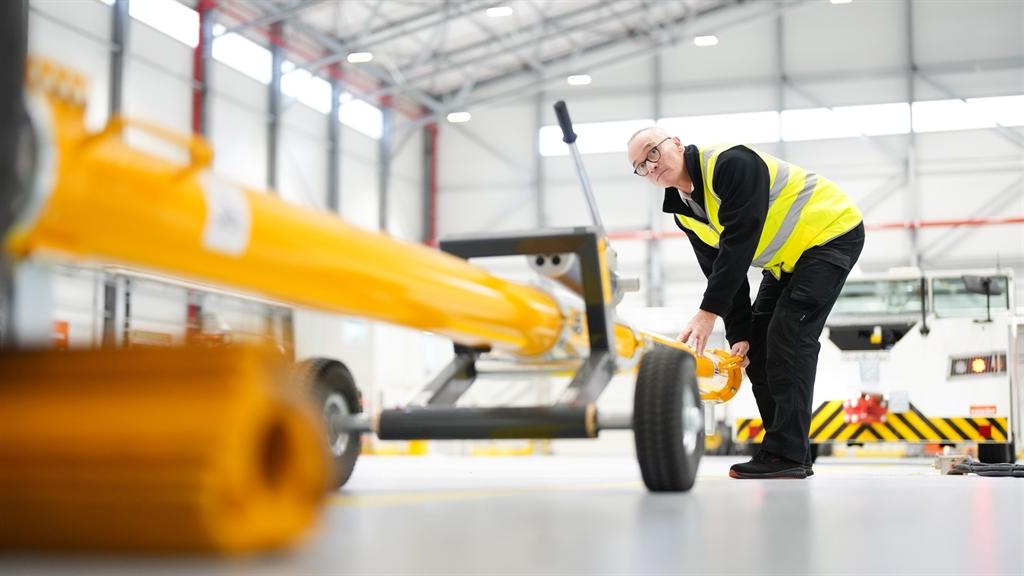
UK low-cost carrier easyJet has taken line maintenance back in-house at seven UK airports, and it is now evaluating further opportunities for maintenance-related cost savings.
“We now have fully completed the insourcing of line maintenance here in the UK,” easyjet CEO Johan Lundgren said during the airline’s full-year earnings call.
The final three bases to come in-house were Belfast International, Birmingham and Manchester, joining Bristol, Edinburgh, Glasgow and London Gatwick.
In mainland Europe, easyJet opened its own hangar at Berlin Brandenburg Airport in January. This has yielded a 38% cost saving, on average, per aircraft visit.
“It is significantly cheaper than it was in the outsourcing model and we’ve got more opportunities to come on this as well,” Lundgren said.
EasyJet said the insourcing has given it greater control over maintenance costs, along with higher maintenance quality.
During the 2022-23 financial year maintenance expenses rose 13% to £341 million ($432 million), but they remained flat on a cost-per-seat basis, and fell by 4% at constant currency. “This reflects that while flying hours have increased in the year, there is a benefit from the fixed element of maintenance costs being apportioned over the increased capacity,” easyJet said.
Over the coming three years, easyJet expects maintenance costs on its existing Airbus A320ceo fleet to increase. EasyJet also listed higher maintenance expenses among its sustainability-related “key risks,” as technology evolves in response to climate change and new regulations are imposed.
EasyJet is hoping to get shareholder approval to acquire 157 more Airbus aircraft on Dec. 19, cementing the airline’s growth strategy to 2034. These aircraft—which comprise 56 A320neos and 101 A321neos—will be used to complete easyJet’s A319 retirement and replace approximately half of its A320ceos.
As of Sept. 30, easyJet had a fleet of 336 aircraft, including 69 A320neos, with a further 158 scheduled to arrive by 2029. Over the coming 12 months, easyJet will receive one A321neo and 15 A320neos. These additional aircraft will pave the way for 8% capacity growth next summer.
“We continue to operate a 100% CFM engine powered fleet so we are unaffected by the Pratt & Whitney challenges that are restricting other airlines abilities to grow next summer,” easyJet CFO Kenton Jarvis said.




